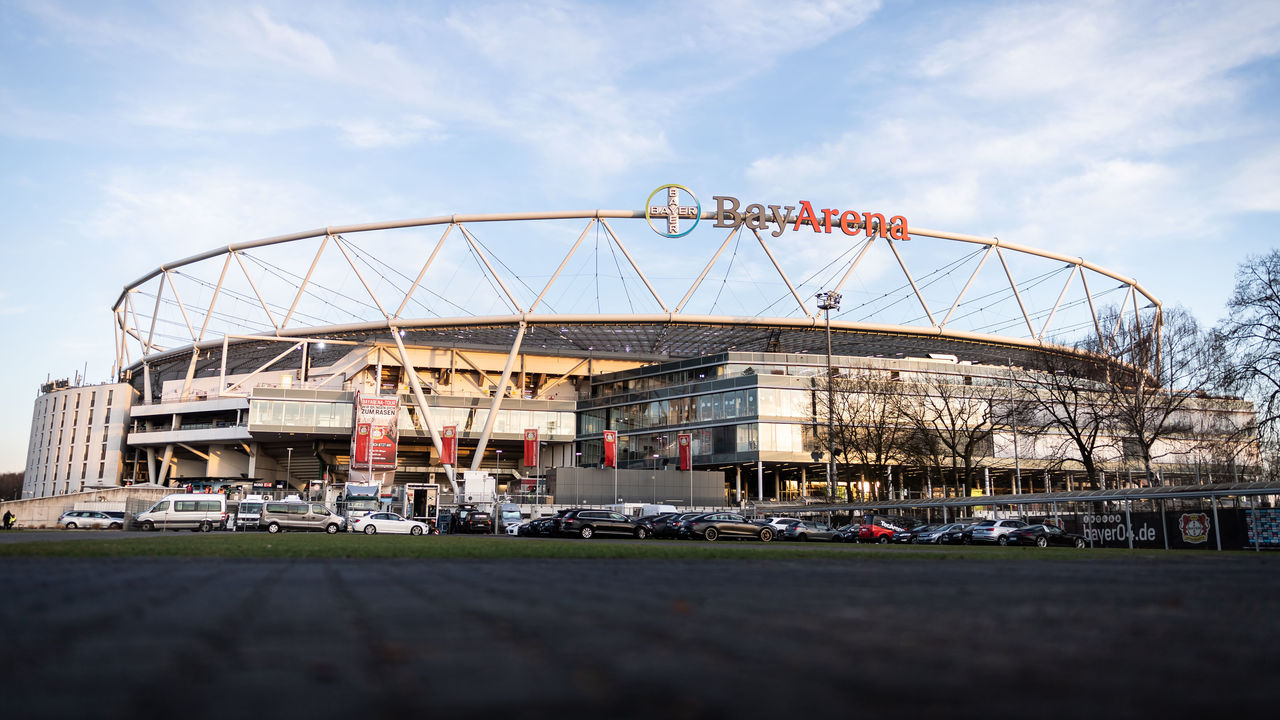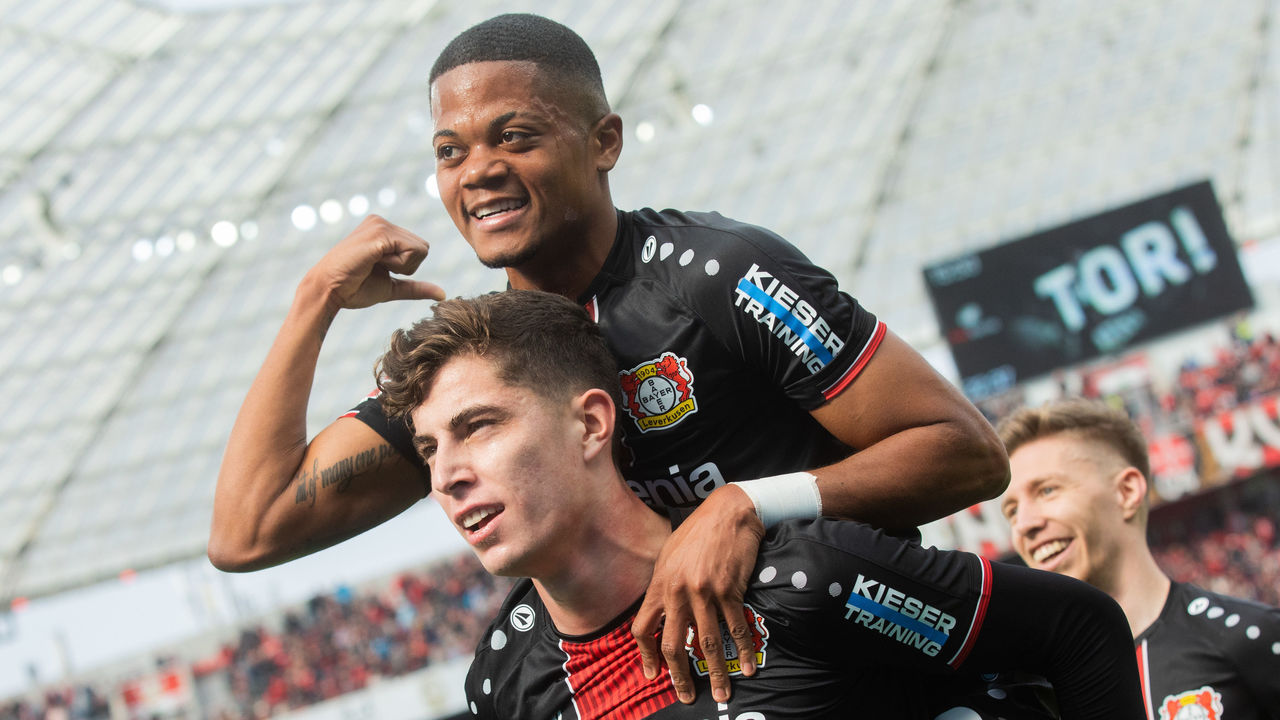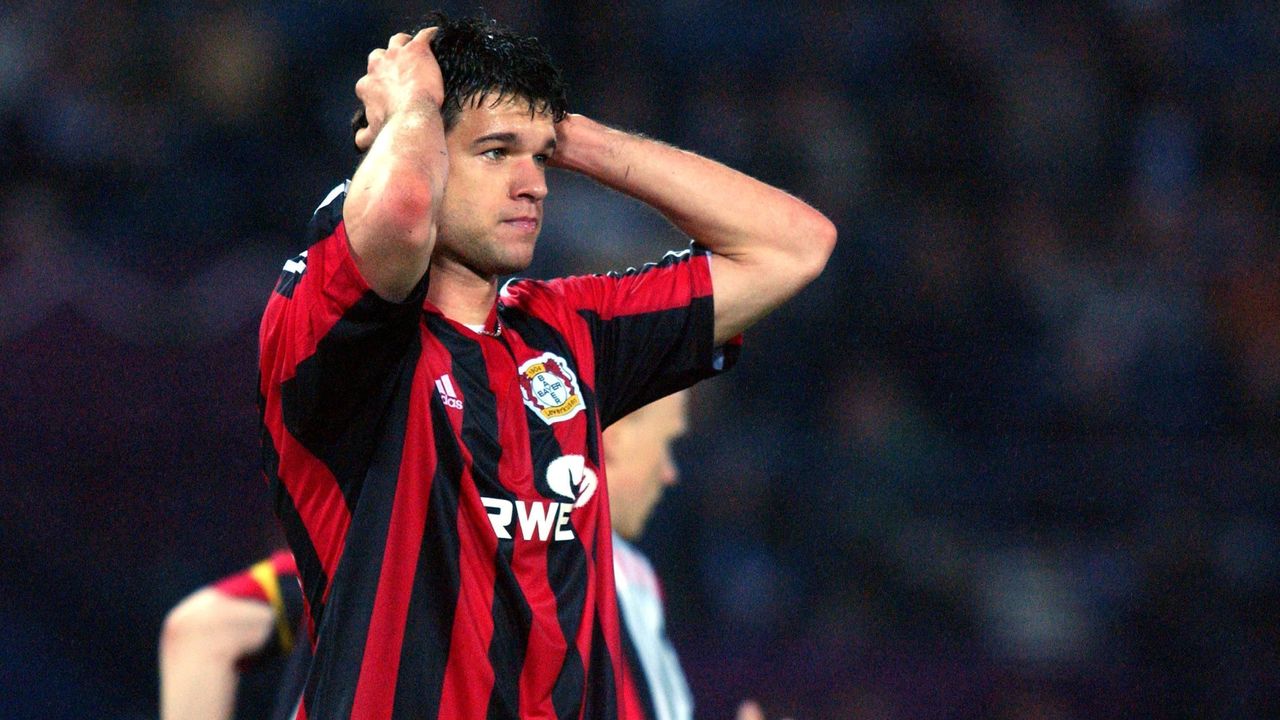theScore in Germany: A look at Bayer Leverkusen's unique place in the country's game
theScore's Michael J. Chandler spent five days in Germany with Bayer Leverkusen, a trip that included a firsthand look at the fierce rivalry with FC Koln, interviews with various players, and plenty of giant German pretzels. Here's the final story from our week-long series.
LEVERKUSEN - Bayer Leverkusen claim a relatively unique place in the cosmos of German football.
With a recognizable brand, a star-studded roster of former players, and a stretch of top-flight participation rivaled only by Bayern Munich and Borussia Dortmund, they fit the profile of a sizable club.
Except that's not entirely the case.
Leverkusen is literally surrounded by rival towns in a football-rich North Rhine-Westphalia region that forms Germany's most populated state (18 million) and the third-largest urban area on the European continent.
Cologne borders to the south, Dusseldorf is a 30-minute train ride on the S6, and Monchengladbach and Dortmund are both nearby. Including Leverkusen, that list accounts for five of the Bundesliga's 18 sides, and other neighboring towns like Essen, Duisburg, Bochum, and Aachen are home to clubs within Germany's professional football ladder.
Amid that landscape, Leverkusen is a relatively tiny town (170,000 people) that persists largely because of Bayer's pharmaceutical pursuits. Population growth has been minimal, and geographically speaking, room for more residents is limited.

The club's corporate foundation and the town's quiet environs contribute to "plastic" epithets from rivals. Though not quite a lightning rod for derision like RB Leipzig's oft-maligned business-backed enterprise, Leverkusen's status is clearly aligned with capitalist enterprises.
The Bundesliga's 50+1 rule - which ensures a club's members hold a majority of voting rights - gives power to supporters, and there's plenty of proof that it directly influences the empowerment of fans across the country. Because of this rule, supporters largely don't sense the chasm between an organization and its devotees like in Europe's other big leagues.
Leverkusen, like Volkswagen-backed Wolfsburg and software company-funded Hoffenheim, is a notable exception. Despite being an outfit with 115 years of tradition that was founded by employees (Die Werkself translates to The Company XI), the club is an outsider due to its irrevocable ties to the Bayer firm.
But like all Bundesliga sides, Leverkusen value their fans. It's not a trope, either. A luncheon with members of various supporters groups on the day of the derby visit to FC Koln confirms as much. It's a surprisingly intimate affair, CEO Fernando Carro is present, and open-face sandwiches featuring sliced hard-boiled eggs that resemble googly eyes are served (they're delicious).
During the luncheon, a supporter from Glasgow who makes weekend trips to see Leverkusen play explains the roots of his peculiar long-distance fandom. Other stories are exchanged describing gestures made by Leverkusen's brass for sick and absent supporters. It's all rather charming.
Leverkusen's current style of play might be just as amiable. Former Ajax tactician Peter Bosz has instituted an attack-happy footballing ethos, while Kai Havertz, Moussa Diaby, Leon Bailey, and Nadiem Amiri highlight a youthful ambush of players 23 or younger. Bosz's lot ranks in the top five of nearly every attacking category in the top flight of German football, including third in passes completed and first in distance covered.
On a larger scale, Havertz, Diaby, and Bailey are the latest first-team standouts who arrived at a young age on the cusp of big things. Other up-and-coming talents have translated a similar status with Leverkusen into moves to the continent's perennial powers and regular places in national teams.

According to Leverkusen sporting director Simon Rolfes, the paths those players have taken are consistent with the club's place in the caste system of German football and its shrewd recruitment policies. "That's our position," Rolfes tell theScore when citing Havertz, Toni Kroos, Dani Carvajal, and Arturo Vidal as youngsters who sprung to stardom courtesy of performances at the BayArena.
A former midfield stalwart with Leverkusen, Rolfes admits that the club develops players for "the top six (teams) in the world; not for the top 40," while maintaining "the capacity to compete with them."
Asked if he has regrets about players leaving for greener pastures, Rolfes insists that he's proud, and laughs when comparing the budgets of his employers and those of Europe's massive sides. "For me, there's one team in Germany different to all the others, and it's Bayern Munich," Rolfes says. "From players, from budget, from history, but with all the others we need to compete."
Rolfes also acknowledges that closing the gap on Bayern "will be difficult," but says that applies to "all the other clubs in Germany."
Indeed, even with the Bundesliga's at-times fanciful attention to fans and provincial ideals, money reigns supreme from a competitive standpoint. Rolfes and Leverkusen are well aware, as is first-choice shot-stopper Lukas Hradecky. "I always expect Bayern to dominate," the Finnish goalkeeper told theScore.
Despite relatively modest means, success hasn't entirely evaded Leverkusen. As one of three German sides to reach a continental final, they've been consistent in maintaining 40-plus years of top-tier safety, they've qualified for a European competition in 12 of the last 15 seasons, and they won the UEFA Cup in 1988 and the DFB-Pokal in 1992-93.
But the club has also been the bridesmaid on too many occasions, which contributes to Leverkusen's status in the composition of German football. Owner of the unenviable "Neverkusen" moniker, the team has finished second in the league five times in the last 23 years, been runner-up in two domestic cups, and succumbed to Real Madrid in the 2001-02 Champions League final.

Notably, Leverkusen won't soon forget the 2001-02 campaign, when they started strong but finished with a whimper. A 14-match unbeaten run in the league guided by Michael Ballack and Lucio's otherworldly performances eventually led to a debacle. Despite a five-point lead with three games remaining, the club collapsed, losing the penultimate match at relegation-threatened FC Nurnberg to gift Dortmund the title.
Klaus Toppmoller's charges then coughed up a lead in the cup final against Schalke days before losing the showpiece match of Europe's top tournament to Real. "Neverkusen." It's inescapable.
Both on the pitch and off it, this is a club that's often flirted with the top billing, but can never quite get over the hump. This year, a recent stretch of two league defeats on the spin have witnessed Leverkusen spoil a chance to claim coveted positions in a congested Bundesliga table. It's a familiar feeling.
But even with heartbreak, tough luck, and comparatively modest resources - along with an undesirable nickname and those cliched plastic claims - Bayer Leverkusen are cognizant of their role in Germany.
In a sport where few clubs are self-aware, that's a footballing identity in and of itself.